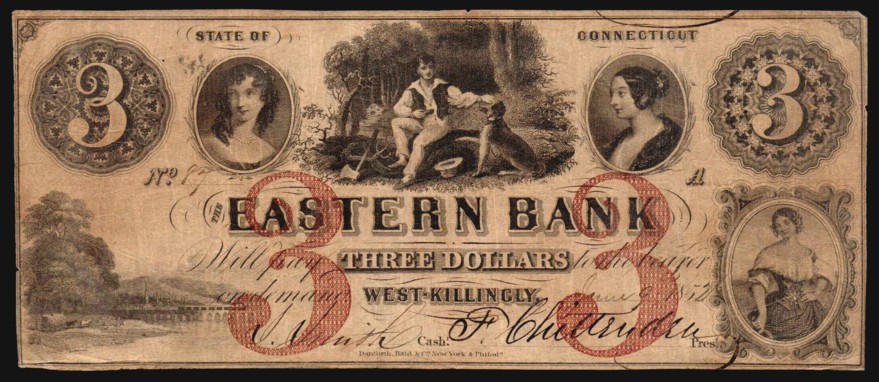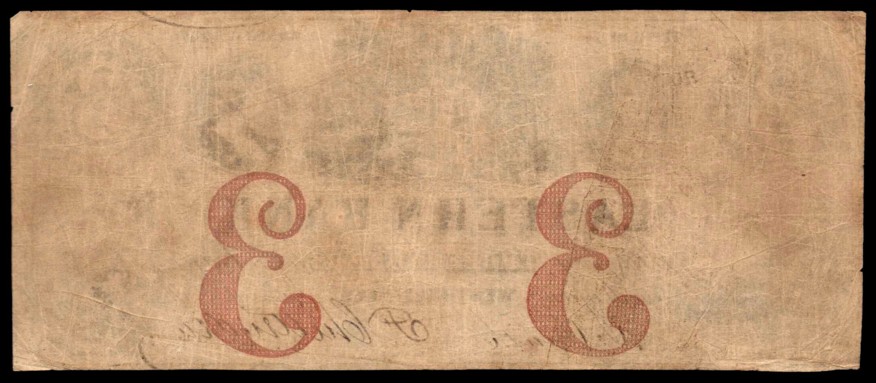Connecticut 1852 $3
Eastern Bank, West-Killingly, Connecticut
In 1852, the term ‘Queer as a Three Dollar Bill’ wasn’t in vogue, and in large part because there were in fact three dollar bills circulating in the United States. While it is indeed true that the United States never in fact issue a three dollar bill, obsolete notes, issued by private banks and companies, did issue them. The term ‘queer’ at that time meant ‘strange’ or ‘odd’. It was not until much later that it became synonymous with gender identification – though perhaps the Pants-Wearing Emma Snodgrass would disagree. (see 1 Dollar 1852 Merchants Bank, Washington D.C.)
West-Killingly (Now Killingly), CT had woolen and cotton mills established early in it’s history. By 1836, Killingly was one of the largest cotton milling towns in New England. In 1840 the railroad came to town in Killingly, furthering the economy of the cotton and woolen mills. But in the early 1900’s, the economic situation changed when the mills started closing and moving further south to compete with the lower wages and business operation costs. This bill features a vignette of a woodsman taking a break with his dog, who was assuredly a fine and noble companion.

